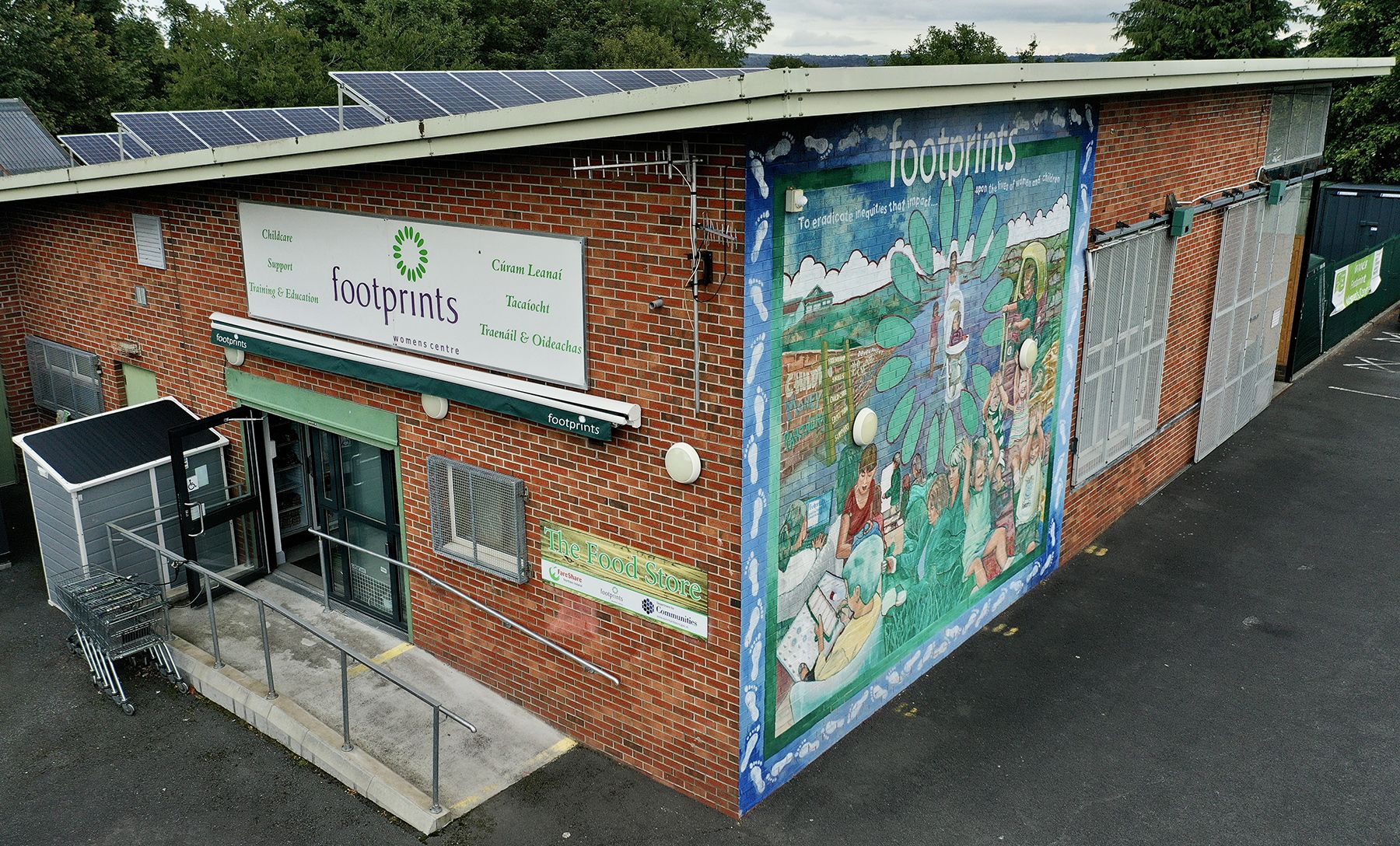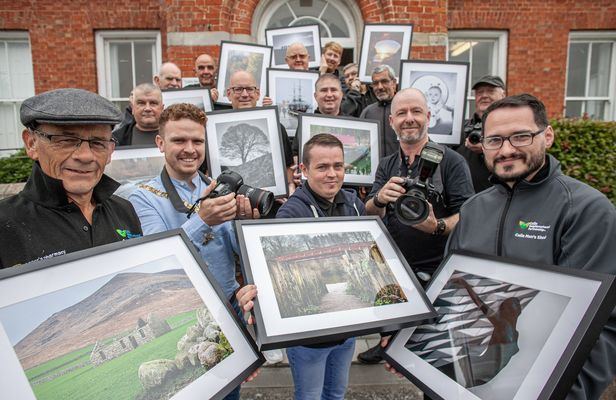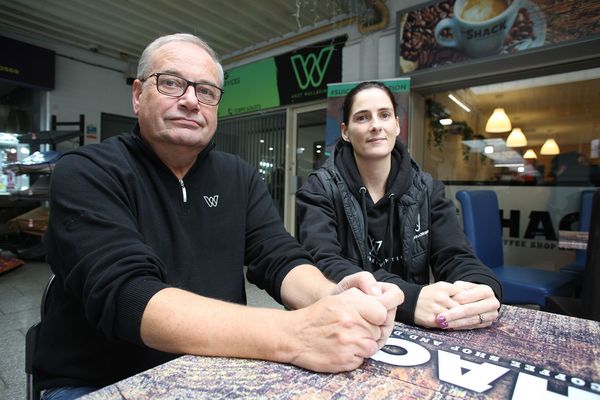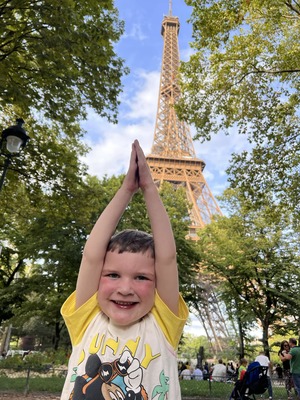FOOTPRINTS Women’s Centre in Poleglass has been to the forefront of helping families within their community for over 30 years, especially with issues impacting women.
Opened in 1991, the organisation has grown as the need has risen.
“It was about building community and Footprints definitely helped that because women were able to come here and find connections whether it was bringing your child in, attending a class, focus group, or volunteering. As woman grew the centre grew,” says Isobel Loughran, CEO of Footprints Women’s Centre.
“There are fourteen women’s centre across Northern Ireland and they’re all very different because they’ve all grown in areas that were most affected by the conflict as well.
“It is so lovely to have this facility which is owned by the women in the area. It’s a lovely space to come and the whole centre is about empowerment.”
The services available at the organisation includes the North’s first social supermarket, a drop-in, training, crisis intervention, support and development, advice and advocacy among a wide range of other amenities.
Eileen Wilson, Food Services & Sustainable Living Manager in the social supermarket
Eileen Wilson, Food Services & Sustainable Living Manager at Footprints, said: “Looking at the underlining issues that women are looking at, food poverty has had more of a profile, it always has been an issue within the area.
"We would have looked at it with the impact of nutritional health for families living in food poverty and how difficult it can be to make any changes or to improve their circumstances.
"The food possibilities are a programme that brings together a wide range of stakeholders, Queen’s University, local schools, us as a community organisation and South East Trust looking at the issue together and how you can impact and change policies.”
Speaking about the impacts of the cost of living crisis on women and families within the Colin community, Isobel said: "The cost of living crisis has certainly impacted us. It isn’t just about the women coming in, it’s also about who is going to support the supporters because we are seeing a difference, there is a working poor being created here.
“There does need to be government intervention. We have excellent services here, we have shone a light on food poverty, it is an issue in particular for women because women are left holding the purse strings most of the time and having to balance that budget that just will not meet. It is also women who are the most marginalised from being the change-makers from policy change so food poverty and the cost of living effects them the most but yet they’re the most marginalised from being able to bring about change.
Eileen Wilsonand Isobel Loughran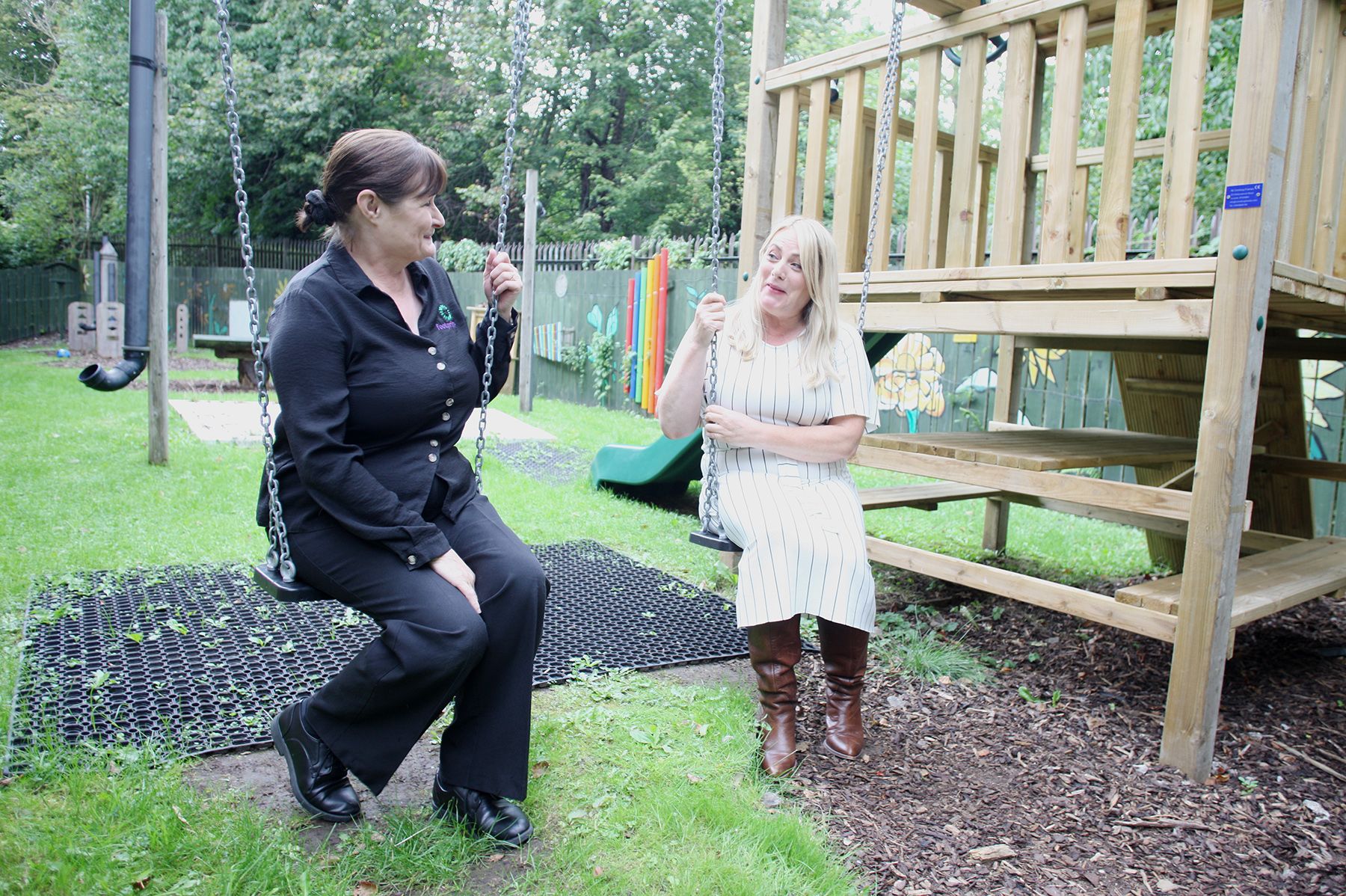
“There is going to be increase in need and that is not going to go away, certainly our services are here but they’re the same services that were here last year and the year before and we’re at capacity and we have no further capacity.
“We do believe we are targeting the most vulnerable but how long that will go on and how we’ll be able to stretch, not just ourselves but other community organisations, is very worrying. All community groups here are going to be beyond stretching point.”
Being a women’s centre, the CEO spoke about the marginalisation that women’s organisations face and how it is a constant fight to have women’s issues heard.
“After 31 years we’re still having to justify our existence, which is frustrating to the many women that have come before us. We’re not only here providing the need and that need is just the same – it’s childcare. Childcare is still central,” Isobel continues.
“When you’re a women’s centre within the community you’re further marginalised. We’ve set up amazing models of practice, but you have to shout, you constantly have to fight. No one ever comes and says that must be an issue to you. You’re constantly having to justify your existence 31 years on.
“We’re the area’s largest community employer, and that’s really important providing jobs and that women can come in here and seeing other women working. We’ve set up businesses, we’ve been awarded for practices, for instance the first green flag award in Colin.”
The social supermarket
The organisation includes a range of children’s services from birth to 16 including daycare, onsite crèche, core respite services, and various other programmes and groups.
“Food is cooked on site here, healthy nutritious food and the menu changes every two weeks. The kids get to experience food, they get tasting sessions making smoothies as well as yoga and mindfulness. That’s really important. It’s providing a learning experience and the kids are growing up seeing very strong women in leadership roles which is really important in our créche and after schools’ young women’s group. The only gendered specific group or young girls’ group in the Colin area.” says Isobel.
“The kids that go into the créche get free nappies, free wipes, all their foods and snacks and that means that that money is released into the parents’ pockets and that’s a big thing. We have been very lucky with donations, Asda and PricewaterhouseCoopers have been very good.
“Our programmes were booked out within a few days. I think now more than ever women getting out, getting childcare and coming into a safe, welcoming and warm space will be very important. We have senior groups here and alcohol recovery groups here which again are gender specific.”
Eileen says: “It’s women creating the opportunities to support each other as well.
Isobel agrees. “We’re here and we’re needed as much now unfortunately as we were 30 years ago. There are wider issues here that have to be addressed. Yes, we do offer support here but without government intervention no organisation solely or even working together will be able to meet the need that we’re looking at at the moment. It’s probably the most concerned that I’ve ever been because no-one knows.
“The sustainable living can’t be put on the back shelf again, there’s a spotlight on food poverty, a spotlight on bringing about change that is urgent.”

